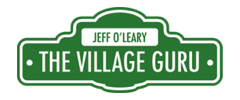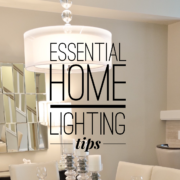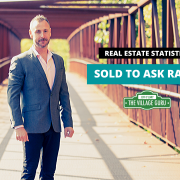I don’t know about you, but every once in a while I like to play card games. Blackjack, Caribbean Stud, 3 Card Poker and Texas Hold’em. My wife and I have a deal where I agree to gamble only once per year on my birthday, and in return for my restraint, she agrees to stay married to me. I think it’s more than a fair deal. What she knows and I know as well, is that in terms of gambling, the odds are stacked against me, the house is always set up to win. Sure, there are certainly times when you can come out a winner, but over the long haul the house doesn’t lose. In my case, when I go to a casino I understand that it’s for entertainment only. I know I can’t rely on my odds but unlike a game of cards, as a home seller or buyer, you shouldn’t be subject to these same odds.
In real estate, “the house” is the industry itself, and all the risk is on YOU, the home seller or buyer. Make the mistake of assuming every agent is the same, or putting bling faith in a ‘brand’ and you may find yourself thoroughly disappointed, or worse it could cost you tens of thousands of dollars. In order to understand how the odds are stacked against you, it is important that you understand how the industry works.
The Real Estate Industry
The way the real estate industry is set up, it dooms most real estate agents to failure. Our industry has one of the lowest costs of entry and requires little in the way of formal education. What does this mean? It means that everyone and their uncle has a license, but few have the skills necessary or the business acumen. There’s a common misconception out there that It’s EASY to play the real estate game, right? As of November 2015, there was 96,401 sales reported on the Toronto MLS system, yet there were well over 40,000 real estate agents licensed with the board.
On average that equals 2.41 sales per real estate agent.
Do you think we need over 40,000 agents to service approximately 100,000 annual sales? We don’t. As a home seller or buyer you REALLY don’t. The only group that thinks we do are the large real estate brands themselves who are happy with things the way they are. This isn’t just coming from me as a real estate agent, I can see this from my experiences with other realtors when they don’t know who I am.
Last year, I had a water heater salesman knock on my door, and after I cut off his script and told him to move along, he blurted out that he was also a real estate agent, so if I ever needed his help, he would give me a great deal… It was so pathetic and typical of my industry that it made me shudder. When I was shopping for my wife’s new car last summer, one of the car salesmen gave me his Re/Max business card, in case I needed help selling my home too…. These are just a few of the dozens of stories I can tell you, and this is from me, a real estate broker who simply doesn’t desperately try to sell myself to every person with a heart beat. I think that psychologically, this is one of the reasons I don’t carry business cards anymore.
Most agents are part time, obtaining their 0-5 sales from friends or family who decide to use them. What’s worse is that most brokerage firms don’t mind if the majority of their agents do little to no deals per year because they make their money charging the agent a monthly desk fee.
For many big brokerages, the goal is to have hundreds of these desk fees every month. Their philosophy is forget about you the consumer, think of the guaranteed income! With this business model, there is no financial incentive on the part of the ‘Big Brands’ to take these part-time, low-skill agents and train them to become full-time, skilled agents. In fact it’s much worse, I’ll argue that these brands couldn’t care less what type of service their agents provide or the outcome their clients receive, just as long as they stay out of a court room.
Most real estate sales people receive little training beyond scripts and cold calls, and instead are told to go out there and harass, beg and do whatever it takes to get a listing appointment. So the odds of the average real estate agent having the experience and ability to deliver you an exceptional experience are slim indeed.
So if you want to avoid having the odds stacked against you, here are the first 3 questions you should ask any real estate agent:
- Do you practice real estate full time?
- Do you have another source of income which can support you or is real estate “it”?
- If I google you, what will come up?
Asking questions like this does not guarantee that you’ve found an honest or scrupulous agent, but it at least gets you out of the gate; you MIGHT have found someone who is actually making a business out of real estate instead of a side job. My goal in writing this article is to point out the problem in my industry and to help you manoeuvre your way around mediocrity because you will be surrounded by it. I want to protect what might be your largest asset (or might not be, congrats to you!) from a poor experience.






